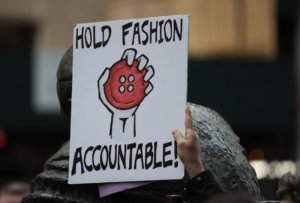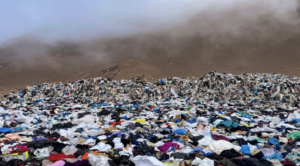In this episode, Dr. Divya Jyoti and Kim sit down with Ken Pucker, former Timberland COO turned sustainable fashion critic, who now works as a Professor of Practice at the Fletcher School. Fun fact: Ken’s career began in manufacturing, and at the time he joined Timberland, they were still producing much of their footwear.
Though it wasn’t necessarily their intention at the outset – this episode ended up focusing on levers for change. Ken shares why he has chosen to focus on shifting the rules of the game through legislative action, but we also discuss the need for systemic change, or to rebuild the “whole house” – and the difficult task of shifting cultural beliefs needed to achieve this.
Ken also reflects on his time at Timberland, and his realization that despite Timberland being a poster child for sustainability, the company’s environmental impact worsened under his watch. He shares how this led him to let go of ideas and assumptions based on infinite resources and growth. If you’re interested in learning more about Ken’s view, I highly suggest checking out his recent publication, “A Circle That Isn’t Easily Squared,” featured in the Stanford Social Innovation Review.
This episode is part of the “Crossover Moments” miniseries, where we explore key moments of personal transformation that led people to question and ultimately reject conventional approaches to sustainable fashion.
98. Crossover Moments : Ken Pucker

 Instant fashion has exploded in recent years, led by Shein whose sales have multiplied by more than 20 times since it entered the U.S. less than six years ago. As Shein explores an IPO, the author reviews the social phenomena that have contributed to instant fashion, the factors that allow it to succeed, and the dangers of the industry’s model. While there’s clearly demand for these products, consumers and policy makers also need to be aware that the business model comes with side effects — particularly the privatization of profit and the socialization of costs, including social and environmental harm.
Instant fashion has exploded in recent years, led by Shein whose sales have multiplied by more than 20 times since it entered the U.S. less than six years ago. As Shein explores an IPO, the author reviews the social phenomena that have contributed to instant fashion, the factors that allow it to succeed, and the dangers of the industry’s model. While there’s clearly demand for these products, consumers and policy makers also need to be aware that the business model comes with side effects — particularly the privatization of profit and the socialization of costs, including social and environmental harm.





